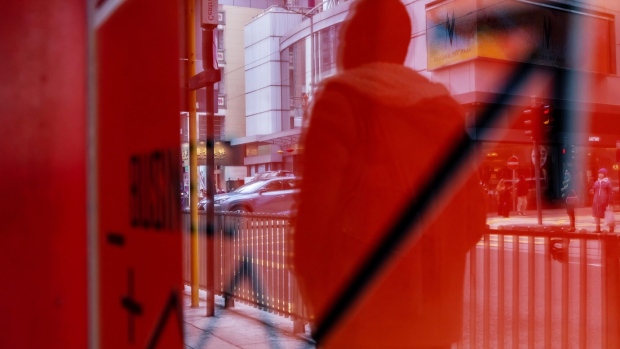Feb 18, 2024
China Stocks Struggle to Gain at Reopen Despite Upbeat Data
, Bloomberg News

(Bloomberg) -- Chinese stocks reopened after the Lunar New Year holidays with less of a bang than investors had hoped for, suggesting buoyant travel and spending data alone aren’t enough to dispel concerns over the broader economy.
A jump in tourist trips, box office ticket sales and Macau casino visitors had fueled bets that the benchmark CSI 300 Index will rally hard, just as Chinese shares listed in Hong Kong and the US did when mainland markets were shut Feb. 9-16.
Instead, the gauge struggled to gain traction for much of the day, only managing to pick up pace in the afternoon to close up 1.2%. That late advance came alongside a surge in turnover in several exchange-traded funds — suggesting that China’s state funds, or the so-called national team, was lending a helping hand.
Foreign investors sold onshore stocks on Monday, underscoring the need for Beijing to do more to revive confidence as the economy struggles with deflation and a property crisis. Ahead of the holidays, authorities made a slew of regulatory tweaks to reduce selling pressure and also replaced the securities regulator chief in a surprise move.
“It was kind of disappointing because with the replacement of the securities regulator chief and better-than-expected holiday spending data, investors were expecting China to reopen with a rally,” said Daniel Tan, portfolio manager at Grasshopper Asset Management. Investor confidence is still low and hence, “every small rally has been met with fresh selling,” he added.
A gauge of stocks in Hong Kong had gained nearly 5% in three sessions since it reopened on Wednesday while the Nasdaq Golden Dragon China Index jumped 4.3% last week.
At a meeting of the State Council on Sunday, Premier Li Qiang called for “pragmatic and forceful” action to boost confidence in the economy, underscoring the government’s concern with a struggling recovery and stocks rout.
Read more: China’s Premier Urges ‘Forceful’ Action to Boost Confidence
A deeper dive by economists at Nomura Holdings Inc. and Goldman Sachs Group Inc. showed Chinese tourists were thrifty spenders even as overall trips were up, with per-capita tourism revenue over the eight-day festival slumping 9.5% versus a similar timespan in 2019.
“It’s worth noting that this year’s Lunar New Year holiday spanned eight days, compared to the seven days in 2019,” said Redmond Wong, market strategist at Saxo Capital Markets. “Additionally, the average tourism spending per trip declined from the levels in 2019 as well.”
Meanwhile, foreign investors offloaded more than 6 billion yuan ($834 million) of mainland shares Monday. Global funds have been opting out of Chinese stocks and seeking alternatives in other markets such as India and Japan.
Traders want to see further policy support across the monetary and fiscal space, in addition to a cut in the reserve requirement ratio already undertaken. China refrained from lowering a key policy interest rate on Sunday as its central bank sought to shield the yuan from volatility. Some economists expect commercial lenders to reduce their loan prime rates on Tuesday.
Tech stocks on the CSI 300 Index stood out on Monday. Cambricon Technologies Corp. and Zhongji Innolight Co. jumped more than 16% as Chinese names related to artificial intelligence responded to OpenAI’s unveiling of its new system, called Sora, that can create realistic-looking videos. Healthcare shares fell the most.
In Hong Kong, the Hang Seng China Enterprises Index closed down 1.3% to snap a three-day advance.
“There is some profit taking in Hong Kong market today such as with the Macau casino operators after strong data prints of the Chinese New Year holiday,” said Dickie Wong, executive director of research at Kingston Securities Ltd. The next thing to watch is a potential lowering of the five-year loan prime rate, Wong added.
Coming soon: Sign up for Hong Kong Edition to get an insider’s guide to the money and people shaking up the Asian finance hub.
The latest Bank of America Corp. survey of money managers showed that going short Chinese stocks, which has been the second-most crowded trade for months, is becoming more popular. A third of the respondents said they will increase their allocation if they see more aggressive fiscal policy to boost the real estate sector.
Any stimulus signs emerging ahead of the key annual meetings in March, where the leadership announces the economic growth target and development goals, will thus be closely watched.
“In terms of tourist consumption numbers, most of the beat comes from the traffic numbers and if you look at average spending, austerity still exists,” said Willer Chen, an analyst at Forsyth Barr Asia Ltd.
--With assistance from Charlotte Yang and Ishika Mookerjee.
©2024 Bloomberg L.P.






